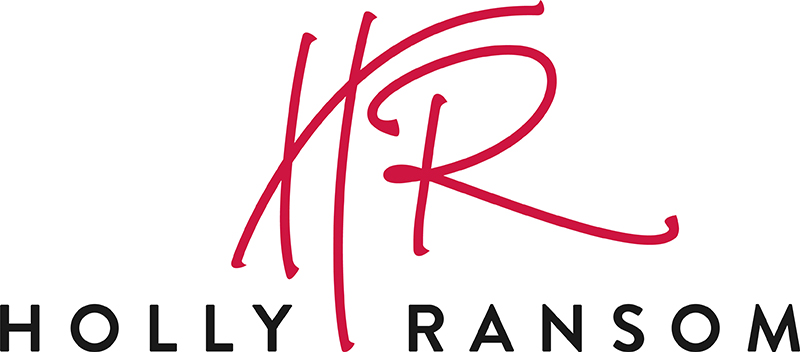Building Atomic Habits in 2019

Those of you who know me well, or who’ve seen me present, will know I’m obsessed with habits. It fascinates me that (depending on what habit study you read) between 30-40% of our daily activity is estimated to be habitual, and yet we have a tendency to overlook the marginal gains that are available to us by merely tweaking our repeated behaviour. Ultimately, success is the product of daily habits—not once-in-a-lifetime transformations, so if we can work out how to make small changes and set them on autopilot, we can dramatically improve our results.
Every year, I like to try and get off the grid after Christmas to take stock of the year that was and plan for the year ahead. I review not just how I went relative to my goals but also reflect on how good a job I did at sticking to my ‘cornerstone habits’- the core couple of behaviours I was focused on maintaining a consistency with throughout the year. Then, as I turn my mind to my goals and aspirations for the year ahead, I ask myself the question ‘do my habits still serve my objectives?’
This year, my annual reflection was aided by a brilliant Christmas gift from my fellow personal development junkie, Layne Beachley (Thanks, Layne!), in the form of New York Times bestselling book Atomic Habits by James Clear. Clear breaks down the four components of habits (Cues-> Cravings -> Responses -> Rewards) and offers up a formula for how we can tweak each stage to cement new positive habits and banish bad ones. Clear defines an ‘atomic habit’ as a regular practice or routine that is not only small and easy to do but is also the source of incredible power; a component of the system of compound growth. At a high level, he talks about how we need to make the cues for positive habits simple, the cravings attractive, the responses easy and the rewards satisfying.
I devoured this book in a single sitting and highly recommend it to anyone who has a self-improvement focus or is stretching themselves in new ways in 2019. There were a couple of standout points that have given me a fresh perspective and/or a new approach to take into 2019 that I thought I’d share with you:
1. Build identity-based habits, not outcome-based habits
Clear suggests that when seeking to form effective habits we need to begin with an understanding of the type of person we want to be and then prove or reinforce that identity to ourselves with small wins. He argues that habits are not about ‘having’ they are about ‘becoming,’ so instead of setting a goal of running a marathon, you’d set out to become a runner. In essence, he contends that in order to change our habits we’ve got to change our identity and for as long as we don’t, no matter how much rational sense a habit change makes if it’s not identity-consistent we will fail to put them into action.
As a starting point, Clear suggests we ask yourself, “Who is the type of person that could get the outcome I want?” and then consider all your actions as a vote for the type of person you wish to become.
How I’m applying this idea:
I started my 2019 planning from a really different place- instead of focusing (like I normally would) on what I wanted to achieve, I asked myself ‘who do I want to become? How do I want to show up?’ It led to a divergent line of self-inquiry to my usual outcome-focused goal-setting approach, and the introspection prompted me to reset my values and develop a new self-talk mantra for 2019.
2. “ You do not rise to the level of your goals- you fall to the level of your systems”
Ouch. This one hit me right between the eyes! On reflection, I think my systems had a lot of room for improvement in 2018!
Goals are about the results you want to achieve. Systems are about the processes that lead to those results. I particularly loved this comment from Clear:
“The purpose of setting goals is to win the game. The purpose of building systems is to continue playing the game. True long-term thinking is goal-less thinking. It’s not about any single accomplishment. It is about the cycle of endless refinement and continuous improvement.”
How I’m applying this idea:
I’m building in better systems! Including:
- using visual cues more effectively in my surrounding environment (I’ve got my intention word for the year on my phone screensaver and my newly-minted values above my desk);
- having an accountability buddy (my best friend) who I’ve built a weekly check-in questionnaire with, to help us hold one another accountable;
- Using a habit tracking app (Streaks) to do my best to ‘never break the chain’- a phrase coined by Jerry Seinfeld when he was honing his comedy career to talk about the importance of doing what you’re trying to improve/build a habit in every single day.
Importantly, I’m being kinder to myself in 2019… I’m so self-competitive that the idea of doing something unbroken for 365 days runs the risk of becoming all-consuming! So instead, I’m holding the concept of ‘never break the chain’ in tension with the idea of ‘never miss twice’- it’s inevitable that life will get in the way of some of these habits (and sometimes in order to be open to possibilities that’s precisely what should happen!) so my focus is not on never missing but never missing twice.
3. Get your reps in!
Habit formation is the process by which a behaviour becomes progressively more automatic through repetition, so the amount of time you have been performing a habit is not as significant as the number of times you have completed it. Therefore, our focus needs to be on repeating our habits for as long as it takes to make them automatic.
Part of where we undo ourselves here (or at least I certainly do!) is by being too ambitious in how I chunk down my goals into habits, meaning I end up asking too much of myself from the outset to give myself much of a shot at building repetition to a point where I’ve got the habit on autopilot. For example, if I had a goal of becoming an author in 2019 and was trying to build a habit of writing consistently, previously I’d likely kick off January 1 by attempting to establish a pattern of writing 5000 words every day. Power to the people who can pull that off but for most of us that’s like trying to drink from a fire hydrant- it’s overwhelming, exhausting and unlikely to leave you excited at the prospect of doing it all over again tomorrow. Instead, I would be better to start by writing a single sentence a day for a week, and when that became easy, we could progress to a paragraph or a page and so on.
Clear makes the point that every habit can be boiled down to a two-minute version, and that’s where we should start (i.e., writing the sentence, not the 5000 words!). The sooner that becomes easy for us to repeat the sooner we can take it to the next level, but we give ourselves the highest likelihood of success if we build reps first vs. loading up the weight.
How I’m applying this idea:
I’ve started my habit tracker on micro-habits this year- i.e., the 2-minute version of what I’m seeking to make an automatic routine. At the end of every month I’m going to reflect on whether I’ve got enough reps in to be able to increase the habit demand or whether I need to work at it a little longer.
Part of what I love about habits and systems is they’re not a ‘destination’ they’re a continual process, and ones which have an innumerate number of approaches and ideas. While I really resonated with some of James Clear’s ideas and perspectives, I’d love to hear about the approach you take to entrenching good habits and any tips you might have.
I also hope you might be able to keep me accountable for one of my 2019 goals: regularly sharing my thoughts and ideas online (via LinkedIn and other mediums). I’m committing to a habit of writing a LinkedIn blog monthly, and I’d love to know what sort of content would be of most significant interest to you.
Wishing you a Happy New Year and all the best with whoever you’re seeking to become in 2019.
Holly
